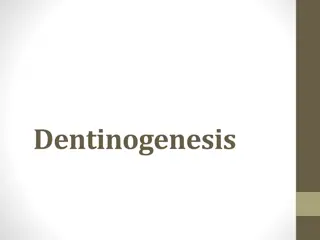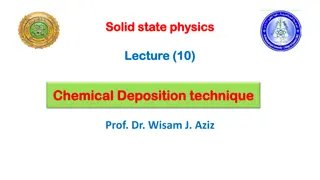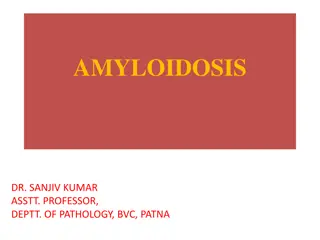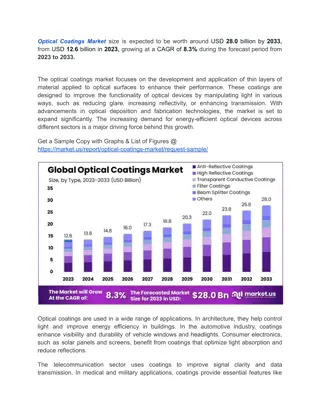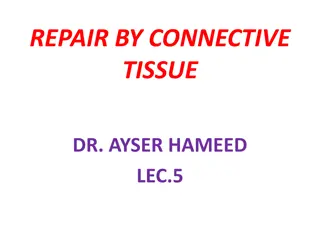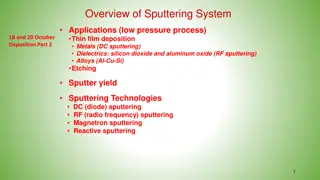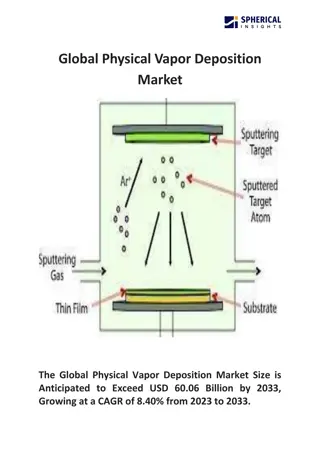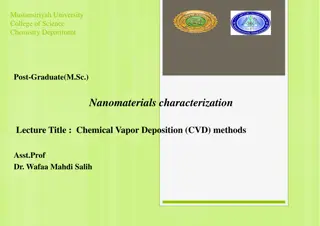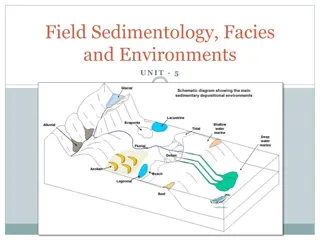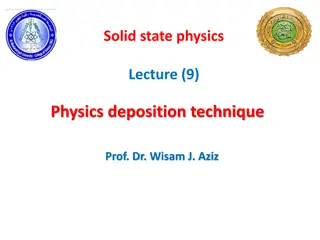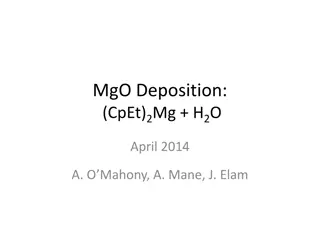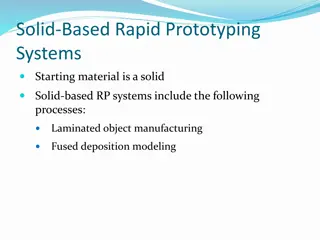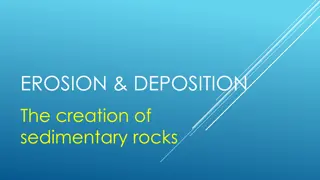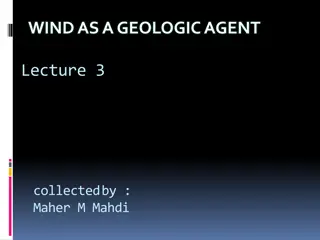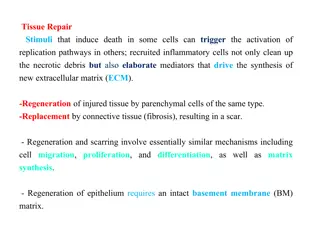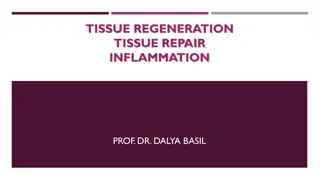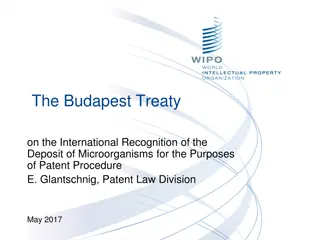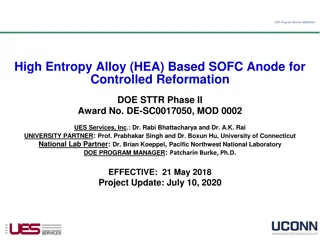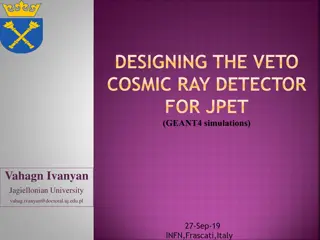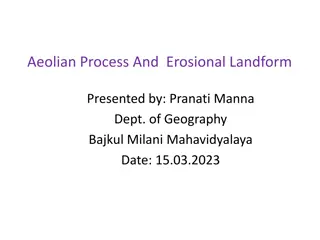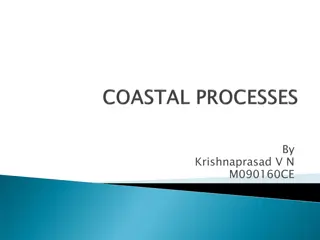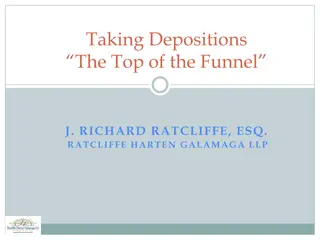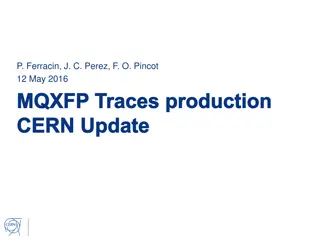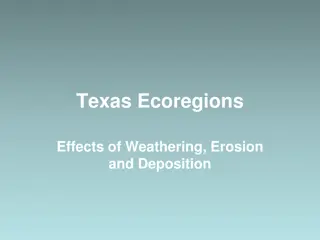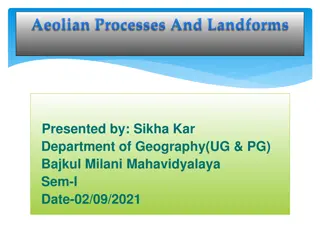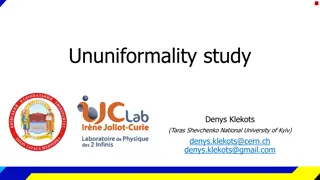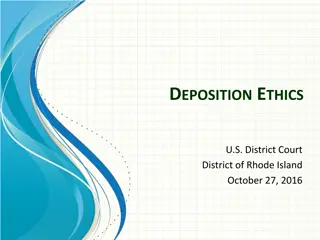Understanding Dentinogenesis: A Comprehensive Overview
Dentinogenesis is a crucial process in tooth development starting at the cusp tips as odontoblasts differentiate and begin collagen production. Factors like TGF, IGF, and BMP play key roles in organizing odontoblast cytoskeleton assembly. Odontoblasts take up calcium, maintain high concentrations, a
0 views • 38 slides
Brain Mineral Deposition and Cognitive Decline Study
Investigating the progression pattern of brain mineral deposition as a differential indicator of cognitive decline in individuals with varying cognitive statuses from normal to Alzheimer's disease. The study aims to develop improved imaging techniques and specific cognitive-relevant atlases to under
4 views • 24 slides
Understanding Alluvial Fans: Formation, Characteristics, and Morphology
Alluvial fans are cone-shaped landforms formed by streams carrying sediments from mountains onto plains. They are prominent in arid to semi-arid regions and vary in size from a few meters to over 150 kilometers. The different zones of an alluvial fan, including the fan apex and distal fan, display d
5 views • 9 slides
Atomic Layer Deposition Equipment Market Size, Trends, Forecast Research 2032
The global atomic layer deposition equipment market size was USD 3.9 Billion in 2023 and is projected to reach USD 9.2 Billion by 2032, expanding at a CAGR of 10% during 2024\u20132032.
0 views • 4 slides
Chemical Deposition Techniques in Solid State Physics
Chemical deposition is a fabrication technique using different chemicals for reactions, allowing coatings to form successfully. Techniques include spray pyrolysis, electrochemical deposition, dip coating, and more. Spray pyrolysis, cost-effective and versatile, is used in various commercial processe
1 views • 25 slides
Understanding Amyloidosis: Causes, Types, and Pathological Characteristics
Amyloidosis is a disorder characterized by the deposition of abnormal amyloid fibrils in tissues, impacting various organs. This condition is associated with different types of amyloid, such as AA and AL amyloid. The deposition of amyloid can lead to tissue damage and organ dysfunction. Primary and
1 views • 11 slides
Optical Coatings Market: Rapid Growth in Consumer Electronics and Automotive App
Optical Coating Market By Product (Anti-Reflective Coatings, High Reflective Coatings, Transparent Conductive Coatings, Filter Coatings, Beam Splitter Coatings, Others), By Technology (Vacuum Deposition, E-beam Evaporation, Sputtering Process, Ion-As
0 views • 4 slides
Understanding Repair by Connective Tissue in Healing Processes
Healing or repair by connective tissue occurs in response to severe or chronic tissue injuries, leading to the replacement of nonregenerated cells with connective tissue or scar formation. This process involves the induction of fibroblast and endothelial cell proliferation, granulation tissue format
3 views • 26 slides
Understanding Sputtering Systems for Thin Film Deposition
Sputtering systems, including DC and RF sputtering, are used for thin film deposition of metals, dielectrics, and alloys. This process involves ejecting atoms from a solid target material through bombardment by energetic particles. The efficiency of sputtering is measured by sputter yield, which dep
0 views • 35 slides
Physical Vapor Deposition Market
The Global Physical Vapor Deposition Market size is expected to be worth around USD 7 Billion by 2033, from USD 3.2 Billion in 2023, growing at a CAGR of 8.1% during the forecast period from 2024 to 2033.\nClick here for request a sample : \/\/market
1 views • 4 slides
Understanding Earth's Landforms: Erosion, Deposition, and Weathering
Explore the processes of erosion, deposition, and weathering that shape Earth's landforms over time. From the breakdown of rock through weathering to the movement of eroded material by erosion and the settling of sediments by deposition, witness the continuous transformation of Earth's surface. Disc
1 views • 14 slides
Understanding Arthritis: Diagnosis and Pathophysiology
Joint pain can result from various factors such as inflammation, cartilage degeneration, crystal deposition, infection, or trauma. Different pathophysiologic processes necessitate clinical evaluation and identification through history, physical examination, and understanding of joint disease types.
2 views • 49 slides
Global Physical Vapor Deposition Market
The Global Physical Vapor Deposition Market Size is Anticipated to Exceed USD 60.06 Billion by 2033, Growing at a CAGR of 8.40% from 2023 to 2033.\n\n
0 views • 8 slides
Chemical Vapor Deposition (CVD) Methods for Nanomaterials Characterization
Chemical Vapor Deposition (CVD) is a widely used method in the field of nanomaterial synthesis, particularly for growing nanotubes, nanowires, and nanoparticles. The process involves decomposing a gaseous precursor on a substrate with the help of a catalyst, either predeposited or provided in the ga
3 views • 8 slides
Field Sedimentology: Methods and Tools for Sedimentary Studies
Sedimentology involves interpreting sediments and rocks in terms of transport and deposition processes, distribution in space and time. Field studies require basic equipment like a notebook, hand lens, compass, clinometer, hammer, and GPS. Palaeocurrent indicators provide evidence of flow direction
0 views • 28 slides
Understanding Sedimentary Rocks and Their Formation
Explore the world of sedimentary rocks through detailed descriptions and images. Learn about the formation process involving sediment deposition, lithification, and the various types of sedimentary rocks such as conglomerate, sandstone, shale, and more. Discover how organic sedimentary rocks like co
0 views • 20 slides
Overview of Physical Vapor Deposition (PVD) Techniques in Thin Film Deposition
Physical Vapor Deposition (PVD) includes various vacuum techniques for depositing thin films on substrates through physical means. This method involves a dry vacuum process to coat objects with different materials. PVD processes utilize methods like Mechanical, Evaporation, Sputtering, Ion plating,
0 views • 31 slides
Study on MgO Deposition Using (CpEt)2Mg and H2O
Investigation conducted in April 2014 on MgO deposition process using (CpEt)2Mg and H2O. Initial attempts showed non-uniformity, with subsequent optimization leading to uniform deposition on MCPs. Thickness measurements taken on Si and MCPs revealed reproducible results with slight depletion in prec
0 views • 8 slides
Exploring Fused Deposition Modeling (FDM) Technology
Fused Deposition Modeling (FDM) is an additive manufacturing technology developed in the late 1980s. This process involves laying down molten material in layers using a heated nozzle, making it ideal for prototyping and production. Stratasys, Inc. is a market leader in FDM technology, offering vario
1 views • 14 slides
Understanding Erosion and Deposition Processes in Geology
Explore the dynamic forces of erosion and deposition in geology, from the constructive and destructive processes to weathering, erosion agents, rates of erosion, sorting of sediment, deposition, and different depositional environments where sediments settle. Delve into how factors like weather, clim
0 views • 12 slides
Understanding Erosion, Deposition, Weathering, and Mass Movement in Geology
Explore the processes of erosion, deposition, weathering, and mass movement in geology. Learn about how rocks are broken down and carried away, the different types of weathering, and the factors affecting these processes. Discover the role of gravity in erosion and the impact of chemical reactions o
0 views • 18 slides
Wind as a Geologic Agent in Shaping Landscapes
Wind has played a significant role in shaping landscapes during times of drier climates, being a key geologic agent impacting erosion and deposition processes. The global wind system, driven by factors such as heating from the sun and the rotation of the Earth, creates convection currents that circu
0 views • 31 slides
Understanding Tissue Repair Mechanisms: Regeneration and Fibrosis
Tissue repair involves complex mechanisms like regeneration by parenchymal cells or fibrosis leading to scar formation. Inflammatory cells play a crucial role in tissue repair, along with processes like ECM synthesis and cell migration. Different types of cells in the body have varying regenerative
0 views • 20 slides
Tissue Regeneration, Repair, and Inflammation Explained
Tissue regeneration and repair processes involve either regeneration of cells or connective tissue repair, depending on the type of cells injured. In cases where regeneration is not possible, healing occurs through the formation of scar tissue. The healing process aims to restore the structural cont
0 views • 40 slides
Understanding the Budapest Treaty on Microorganism Deposits
The Budapest Treaty on the International Recognition of the Deposit of Microorganisms for the Purposes of Patent Procedure addresses the importance of sufficient disclosure and deposit of microorganisms in patent applications. Microorganisms play crucial roles in various industries like food product
0 views • 30 slides
Understanding Sedimentology: An Overview of Sedimentary Processes and Rocks
Sedimentology is the study of modern sediments like sand, mud, and clay, along with the processes involved in their deposition. Sedimentologists use this knowledge to interpret Earth's geologic history through sedimentary rocks and structures. Sediment plays a crucial role in enriching soil with nut
0 views • 27 slides
Development of High Entropy Alloy-Based SOFC Anode for Controlled Reformation
Development and testing of a High Entropy Alloy-based Solid Oxide Fuel Cell (SOFC) anode for controlled reformation to improve thermal performance, reduce carbon deposition, and enhance durability. The project involves fabricating cells, electrochemical testing, modeling reformation rates, and scali
0 views • 32 slides
Designing Veto Cosmic Ray Detector for JPET Using GEANT4 Simulations
Creating the Veto Cosmic Ray Detector for JPET involves designing the current version of Veto JPET, incorporating 42 scintillators, detecting 4 GeV cosmic muons, generating cosmic muon distribution, and simulating energy deposition inside the veto scintillators. The process includes particle generat
0 views • 26 slides
Understanding Aeolian Processes and Erosional Landforms
Aeolian processes, driven by wind, shape landscapes through erosion and deposition. This presentation by Pranati Manna explores wind erosion methods like deflation, corrasion, and attrition, as well as transportation and deposition mechanisms. Aeolian landforms, including deflation basins, mushroom
0 views • 19 slides
Understanding Coastal Processes: Erosion, Deposition, and Human Impact
Coastal processes involve a complex interplay of erosion, deposition, and human activities that impact the dynamic equilibrium of coastlines. Energy from tides, waves, wind, and currents shape the land-water interface, while human use of coasts introduces conflicts leading to unstable systems. Sedim
0 views • 44 slides
Mastering the Deposition Process for Legal Professionals
Discover the ins and outs of taking or defending depositions with expert advice on preparation, questioning techniques, and maximizing the deposition experience. Learn why depositions are crucial in building a strong legal case, uncovering new information, and testing theories. Gain insights into us
0 views • 15 slides
Production Update and Challenges in MQXFP Coil Development at CERN
The production update of MQXFP coils at CERN reveals challenges faced during the fabrication process. Issues such as poor quality traces, short circuits, and circuit delamination have been encountered, leading to delays and rejected prototypes. Despite ongoing investigations and tests, including cop
0 views • 5 slides
Understanding Obesity: Risk Factors, Fat Deposition, and Hormonal Control
Obesity is a condition characterized by excess body fat accumulation, impacting overall health and increasing the risk of various complications such as diabetes, heart disease, and cancer. This content delves into defining obesity based on BMI, exploring anatomic and biochemical differences in fat d
0 views • 12 slides
Understanding Biological Changes with Light or Heavy Forces Application
Tooth movement can be categorized as physiologic, pathologic, or orthodontic, with forces transmitted through the tooth to the periodontal ligament and alveolar bone. Changes occurring due to light and heavy forces result in bone resorption and deposition, impacting the supporting structures. Histol
0 views • 25 slides
Strategies for Defending Insurance Company Depositions
Explore key issues and successful strategies for defending insurance company depositions in this comprehensive primer. Learn about pre-deposition considerations, effective defense tactics, and case precedents to enhance your preparation and approach. Gain valuable insights from legal experts to navi
0 views • 20 slides
Texas Ecoregions: Effects of Weathering, Erosion, and Deposition
Texas is divided into various ecoregions each with unique characteristics impacted by weathering, erosion, and deposition. Piney Woods, Western Gulf Coastal Plain, Grand Prairie and Plains, Edwards Plateau, Rolling Plains, and Western and Eastern Cross Timbers are discussed in terms of their soil ty
0 views • 12 slides
Understanding Aeolian Processes and Landforms
Aeolian processes are crucial in arid and semi-arid regions, involving erosion, transportation, and deposition by wind. Factors like wind velocity, grain size, rock composition, and vegetation influence erosion. Different types of wind erosion include deflation, abrasion, and attrition. The transpor
0 views • 18 slides
Study on Energy Deposition in Ununiformality Simulation by Denys Klekots
Simulation study by Denys Klekots at Taras Shevchenko National University of Kyiv focuses on energy deposition in a detector with non-uniform distribution of primary hits. Results show a linear growth in error on energy measurement with non-uniformity and differences in efficiency maps between 1 GeV
0 views • 17 slides
Understanding Deposition Ethics in U.S. District Court
Explore the case of Kelvey v. Coughlin, a medical negligence matter, which sheds light on deposition ethics in the U.S. District Court of Rhode Island. The case involves guidelines on conducting depositions, proper behavior for attorneys, and the consequences of discovery abuse. Learn about the dos
0 views • 29 slides
Streamlined Remote Deposition Services in Cincinnati – Litigation Support
Simplify your legal proceedings with premier remote deposition services in Cincinnati. Litigation Support Services offers cutting-edge technology for secure and convenient depositions. From transcription to video recording, we handle it all, ensuring
1 views • 1 slides
